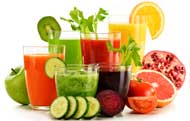





1. Tomato Facts
2. Types of Tomato
3. Tomato Nutritional value
4. Tomato Health Benefits
The tomato (Solanum lycopersicum) is a plant whose fruit is an edible berry that is eaten as a vegetable.
History and Origin
The tomato originated in the Andes region of South America, spread to Mexico where it was domesticated by pre-Columbian peoples, and was then introduced to Europe by the Spanish in the 16th century. Initially regarded with suspicion and grown ornamentally in northern Europe due to its relation to the poisonous nightshade family, the tomato was embraced as a food primarily in the Mediterranean, eventually becoming a staple crop worldwide.
- • Roma
- • Grosse Lisse
- • San Marzano
- • Amish Paste
- • Cherry Ripe
- • Peron Spray
- • Golden Sunrise
- • Money Maker
- • Apollo
- • Adelaide
- • Alicante
- • Baxter's Early Bush
12 Tomato types grown and sold in Australia
Roma tomatoes are a popular, plum-shaped variety known for their firm, meaty texture and low moisture content, making them ideal for cooking, canning, and making pastes or sauces. They are a determinate bush variety that grows into a compact plant, is resistant to some diseases like fusarium wilt, and is versatile enough to be eaten fresh or preserved.
The Grosse Lisse tomato is a popular, heavy-yielding Australian heirloom variety known for producing large, globe-shaped, deep red fruits with a sweet flavor. It is a climbing, indeterminate type that requires staking and pruning to develop good fruit production. Grosse Lisse tomatoes are versatile and excellent for slicing in sandwiches, salads, or for canning.
San Marzano tomato is a variety of plum tomato originating in Campania, Italy. It is known for its flavour and quality as a canning tomato.
Amish Paste tomato has a rich, sweet flavour suitable for eating fresh and in salads, a hearty texture suited to sauces and pastes, and a shape that's favourable.
Cherry Ripe is likely a reference to a specific type of cherry tomato, such as a brand name, or it could be a general term for cherry tomatoes that are ripe. To determine if a cherry tomato is ripe, look for the mature colour (like red, yellow, or purple depending on the variety), check for slight softness to the touch, or observe if a "star" appears at the bottom of some dark varieties.
Peron Sprayless Heirloom from Argentina. Good all-purpose tomato; ideal for canning, bottling, slicing, salads and cooking. Large, disease resistant, smooth, red, round, tomatoes. The thick skin helps protect the fruit from insects.
Golden Sunrise is an heirloom tomato variety known for its medium-sized, golden-yellow, globe-shaped fruits with a sweet, fruity, and tangy flavour. It is an indeterminate (climbing) variety that is prolific and early-to-mid maturing, requiring staking or other supports to grow. This award-winning variety is prized for its rich taste and vibrant colour, making it a popular choice for salads, sandwiches, and other dishes.
Money Maker Tomato has a beautiful round scarlet fruit, thin skinned solid flesh and fine flavour.
The Apollo tomato is an early-fruiting, indeterminate hybrid tomato variety known for its globe-shaped, red, and firm fruit with a delicious flavour. It is a vigorous grower that requires staking, can reach heights of up to 2.5 meters and has enhanced disease resistance. This versatile tomato is ideal for salads, sandwiches, and cooked dishes.
Adelaide tomato can refer to a few different things: it can describe heirloom varieties like Adelaide Tomatoes, or specific named varieties such as the 'Adelaide Festival' and 'Sweet Adelaide' tomatoes, which are prized for their unique flavours and characteristics. It can also be a generic term used in supermarkets, such as "Tomatoes - Adelaide," often referring to tomatoes grown in or sold in the Adelaide region.
The Alicante tomato is a popular heritage tomato variety known for producing heavy yields of medium-sized, sweet, red tomatoes that are resistant to greenback. It is an indeterminate, cordon type that is reliable and early-maturing, performing well in both greenhouses and outdoors. This established variety is an excellent all-rounder for home gardens, valued for its classic flavour and high productivity.
Baxter's Early Bush is an early tasty red cherry Tomato that is able to set fruit under adverse temperatures. Vigorous and productive, the compact dwarf plants yield firm crack resistant fruit around a week earlier than other open pollinated cherry tomatoes. It is reliable and offers a concentrated fruit set.
Vegetables " Tomato "
Nutritional value per 100 g
Tomatoes, red, ripe, raw, year round average
|
Nutrient (Proximity)
|
Unit
|
Value
|
Daily Value %
|
|
Energy
|
kcal
|
18 | 0.9% |
|
Protein
|
g
|
0.88 | 1.7% |
|
Total lipid (fat)
|
g
|
0.20 | 0.2% |
|
Carbohydrate, by difference
|
g
|
3.89 | 1.4% |
|
Fiber, total dietary
|
g
|
1.2 | 4.2% |
|
Sugars, total
|
g
|
2.63
|
|
|
Minerals
|
|||
|
Calcium, Ca
|
mg
|
10 | 0.7% |
|
Iron, Fe
|
mg
|
0.27 | 1.5% |
|
Magnesium, Mg
|
mg
|
11 | 2.6% |
|
Phosphorus, P
|
mg
|
24 | 1.9% |
|
Potassium, K
|
mg
|
237 | 5% |
|
Sodium, Na
|
mg
|
5 | 0.2% |
|
Zinc, Zn
|
mg
|
0.17 | 1.5% |
|
Copper, Cu
|
mg
|
0.059 | 6.5% |
|
Manganese, Mn
|
mg
|
0.114 | 4.9% |
|
Selenium, Se
|
mcg
|
0.0 | |
|
Vitamins
|
|||
|
Vitamin C, total ascorbic acid
|
mg
|
13.7 | 15.2% |
|
Thiamin (B-1)
|
mg
|
0.037 | 3% |
|
Riboflavin (B-2)
|
mg
|
0.019 | 1.4% |
|
Niacin (B-3)
|
mg
|
0.594 | 3.7% |
|
Pantothenic acid (B-5)
|
mg
|
0.089 | 1.7% |
|
Vitamin B-6
|
mg
|
0.080 | 4.7% |
|
Folate, total (B-9)
|
mcg
|
15 | 3.7% |
|
Vitamin B-12
|
mcg
|
0.00
|
|
|
Vitamin A, RAE
|
mcg
|
42 | 4.6% |
|
Vitamin E (alpha-tocopherol)
|
mg
|
0.54 | 3.6% |
|
Vitamin D (D2 + D3)
|
mcg
|
0
|
|
|
Vitamin K (phylloquinone)
|
mcg
|
7.9 | 6.5% |
|
Lipids
|
|||
|
Saturated Fatty Acids
|
g
|
0.028
|
0.1% |
|
Monounsaturated Fatty Acids
|
g
|
0.031
|
|
|
Polyunsaturated Fatty Acids
|
g
|
0.083
|
|
|
Trans Fatty Acids
|
g
|
0.000
|
|
|
Carotenoids
|
|||
|
Beta-Carotene
|
mcg
|
449
|
|
|
Alpha-Carotene
|
mcg
|
101
|
|
|
Lycopene
|
mcg
|
2573
|
|
|
Lutein + zeaxanthin
|
mcg
|
123
|
|

|
Reference Values are based on a 2,000 Calorie Intake, for Adults and Children 4 or More Years of Age. Your daily values may be higher or lower depending on your calorie needs.
|
|
Percentages are roughly approximated using (RDA) Recommended Dietary Allowances for adults. Source: Nutrient Database - USDA (United States Department of Agriculture)
|
|
Reference Values for Nutrition - FDA U.S. Food and Drug Administration
|
Tomato Nutritional Value
Tomatoes provide numerous health benefits, including supporting heart health through potassium and lycopene, protecting the eyes and skin with carotenoids, boosting the immune system with vitamins A and C, and promoting digestive health through fiber. Cooking tomatoes increases the availability of beneficial compounds like lycopene, which is a powerful antioxidant that can also help with bone health.
They are also linked to a reduced risk of certain cancers and can help manage blood sugar levels and blood pressure.
- SUPPORT HEART HEALTH
Tomatoes support heart health due to their high levels of the antioxidant lycopene, which can lower LDL (bad) cholesterol and blood pressure. They also provide potassium and vitamin C, further aiding cardiovascular function. A diet rich in tomatoes is associated with a reduced risk of heart disease, heart attacks, and stroke. - IMMUNE SUPPORT SUPPORT
Tomatoes support the immune system due to their high levels of vitamins, antioxidants, and other beneficial compounds like lycopene, vitamin C, and folate. These nutrients help fight free radicals, support immune cell function, and reduce inflammation, which contributes to overall health. - BENEFIT SKIN HEALTH
Tomatoes benefit skin health primarily due to their high antioxidant content, especially lycopene, which protects against sun damage and aging. Consuming tomatoes can improve skin resilience, reduce the risk of sunburn, and help maintain moisture. Key nutrients like vitamin C, beta-carotene, and B vitamins also support collagen production and cellular repair. - REDUCED CANCER RISK
Tomatoes may help reduce cancer risk, particularly prostate, lung, and stomach cancers, due to compounds like lycopene and other antioxidants. Evidence suggests that cooked tomatoes are more effective because processing increases the bioavailability of lycopene, the main antioxidant in tomatoes. Other beneficial compounds in tomatoes include vitamins, carotenoids, and polyphenols.

- BONE HEALTH
Tomatoes support bone health through several nutrients, including vitamin K, calcium, and lycopene. Vitamin K and calcium are crucial for bone density, while the antioxidant lycopene may help prevent bone loss by fighting inflammation and oxidative stress, which are linked to bone breakdown. - DIGESTIVE HEALTH
Tomatoes can benefit digestive health due to their fiber and water content, which help regulate bowel movements and prevent constipation. They may also support a healthy gut microbiome by promoting good bacteria and contain lycopene, an antioxidant that can reduce inflammation. However, for some individuals, the acidity in tomatoes can trigger or worsen heartburn and acid reflux. - EYE HEALTH
Tomatoes support eye health due to their high levels of antioxidants like lycopene, lutein, and zeaxanthin. These compounds help protect the eyes from sun-induced damage and may reduce the risk of developing age-related macular degeneration and cataracts. - REDUCED INFLAMMATION
Tomatoes can help reduce inflammation due to their high content of antioxidants like lycopene and vitamin C. These compounds combat oxidative stress and may lower inflammatory markers, potentially reducing the risk of inflammatory diseases like cardiovascular disease and diabetes. To enhance absorption, cook tomatoes with olive oil, as this makes the lycopene more available to the body
References
Nutrient Database - USDA (United States Department of Agriculture)
Reference Values for Nutrition - FDA U.S. Food and Drug Administration
Rich in Vitamins and Minerals - Tomatoes are rich in essential vitamins like C and K, minerals such as potassium and folate, and beneficial antioxidants like lycopene and beta-carotene. These nutrients support various health functions, including healthy skin and strong bones, and may help protect against chronic diseases. A single medium tomato can provide a significant portion of your daily recommended intake for these vital components.
High in Antioxidants - Tomatoes are high in antioxidants, particularly the pigment lycopene, which gives them their red colour and protects cells from damage that can lead to chronic diseases like cancer and heart disease. Tomatoes also contain vitamin C and other beneficial compounds like flavonoids and beta-carotene, all contributing to their overall health benefits, including improved heart and eye health, and anti-inflammatory effects.
Heart Health - Tomatoes benefit heart health by providing lycopene, an antioxidant that lowers LDL ("bad") cholesterol and blood pressure, and by offering potassium, vitamin C, and fiber which further support a healthy cardiovascular system and reduce the risk of atherosclerosis. Regular tomato consumption can help prevent plaque build-up in arteries and reduce the likelihood of heart attacks and strokes.
Muscle Recovery - Tomatoes and tomato juice can aid in muscle recovery due to their antioxidant properties, particularly from the compound lycopene, which helps reduce inflammation and oxidative stress after exercise. Studies show that drinking tomato juice can lead to faster muscle recovery and quicker normalization of blood glucose levels after strenuous activity. Additionally, tomatoes are a good source of electrolytes like potassium and can provide carbohydrates to help replenish glycogen stores, making them a beneficial post-workout addition to a balanced diet.
Bone health - Tomatoes support bone health through several nutrients, including vitamin K, calcium, and lycopene. Vitamin K and calcium are crucial for bone density, while the antioxidant lycopene may help prevent bone loss by fighting inflammation and oxidative stress, which are linked to bone breakdown.
Cancer Prevention - Tomatoes and their processed products are linked to lower cancer risk, primarily due to lycopene, an antioxidant with protective effects against various cancers, especially prostate, lung, and stomach cancers. Higher consumption of tomato-based products correlates with a reduced risk, though a direct cause-and-effect relationship isn't definitively proven due to the observational nature of most studies. Including a variety of tomato products, especially when consumed with fat for better lycopene absorption, is recommended as part of a fruit- and vegetable-rich diet to potentially reduce cancer risk.
Eye and Skin Health - Tomatoes benefit eye and skin health by providing powerful antioxidants like lycopene, lutein, and beta-carotene, which protect against UV damage and diseases like age-related macular degeneration. Vitamin C supports collagen production, keeping skin supple, while vitamin K aids wound healing. The carotenoids in tomatoes also reduce sensitivity.
Sperm Motility - Tomatoes contain lycopene, a powerful antioxidant, which has been shown to improve sperm motility, count, and morphology in some studies on men with infertility and healthy men. This effect is thought to be due to lycopene's ability to reduce oxidative stress, making sperm less vulnerable to damage. While tomato juice consumption demonstrated a positive effect in one study, other studies have focused on lycopene supplementation, and more randomized, placebo-controlled trials are needed for a definitive understanding of tomato's impact on sperm motility.
Cook your Tomatoes - Cooking tomatoes enhances the body's absorption of lycopene, a powerful antioxidant, by breaking down their thick cell walls, which trap the nutrient. Combining cooked tomatoes with healthy fats like olive oil further boosts lycopene absorption because it is a fat-soluble nutrient. This combination is associated with a lower risk of chronic diseases such as heart disease and certain cancers.
National Institutes of Health (NIH) (We conclude that the addition of olive oil to diced tomatoes during cooking greatly increases the absorption of lycopene).
